The NGO Athénée Action Humanitaire in Luxembourg City has had a partnership with the Cape Winelands Biosphere Reserve in South Africa for several years. Representatives of this UNESCO Biosphere are currently visiting Luxembourg and took the opportunity to visit the Minett UNESCO Biosphere.
A day in Ellergronn and in the “Giele Botter” nature reserve
A delegation of four people, including the director of the South African biosphere reserve, Marc Heistein, and the person in charge of their educational programmes, Celine Macdonald, arrived in Ellergronn yesterday morning (18 September) at 10:00.
The visit started with a short presentation of the structure and projects of the Minett UNESCO Biosphere Reserve, followes by a first discovery tour of the reserve. At the site of the old Cockerill mine, we were able to explain to the South African visitors the close link between our biosphere and its industrial past, and to show our guests Minett’s past as a mining region.
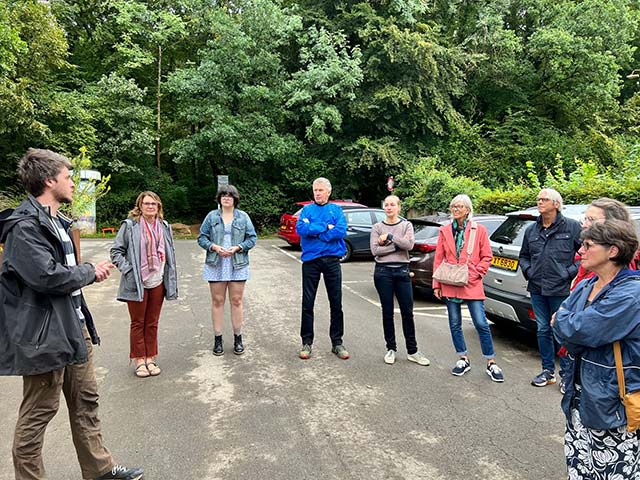 |
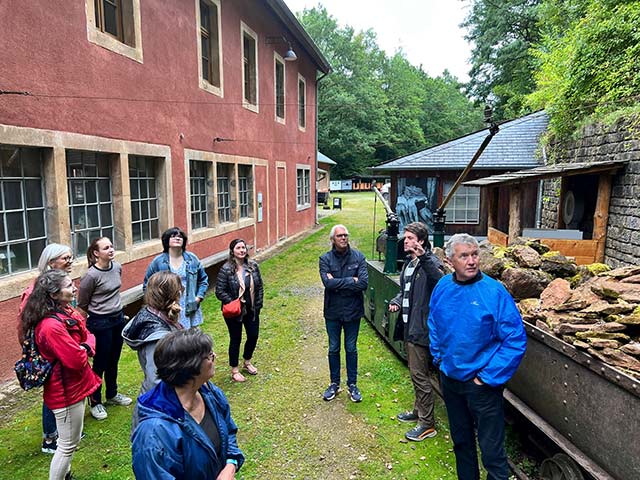 |
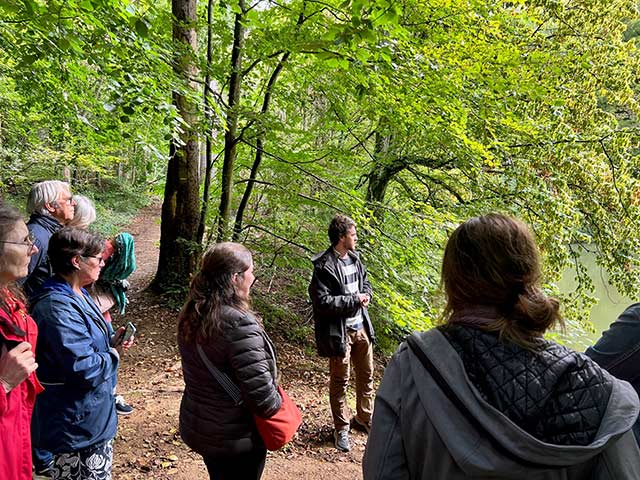 |
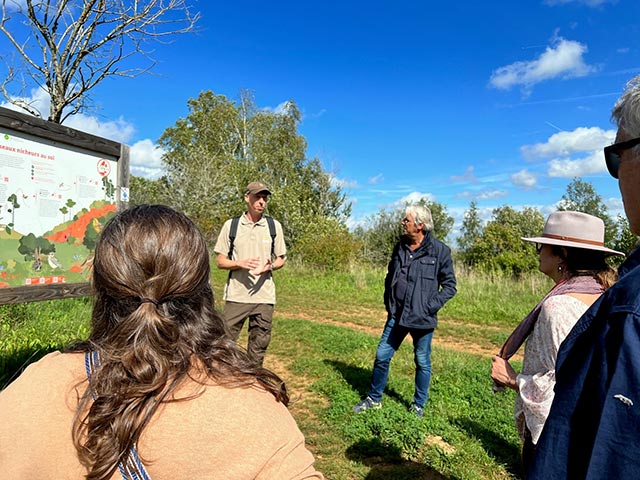 |
 |
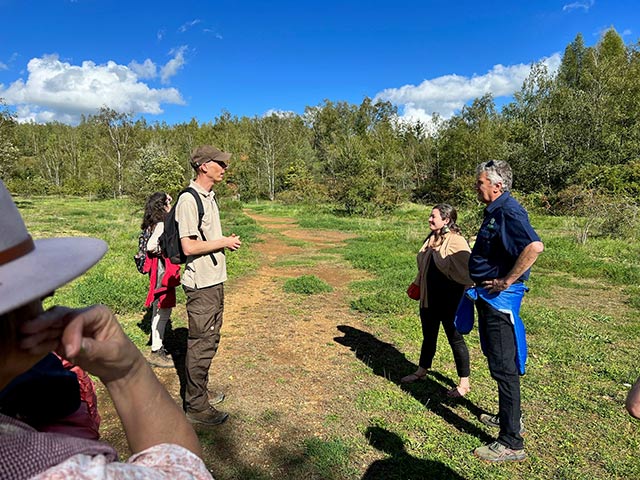 |
© Minett UNESCO Biosphere
After a joint lunch break, we went to the Giele Botter Nature Reserve, where Jan Herr, who is responsible for the conservation of the former open-cast mines that are now nature reserves, explained to the South African guests the uniqueness of the biodiversity of these areas and the measures that are being taken to promote and preserve this biodiversity.
Cape Winelands Biosphere Reserve
The Cape Winelands Biosphere Reserve (CWBR) covers an area of 3220 km2 and was included in UNESCO’s global Man and the Biosphere (MAB) programme in 2007. It is located in the Western Cape Province of South Africa, about 40 km east of Cape Town, and consists of the municipalities of Stellenbosch, Drakenstein, Breede Valley, Witzenberg and Theewaterskloof.
The main objectives of the Cape Winelands Biosphere Reserve are
- Conservation (of landscapes, ecosystems, species and genetic variation)
- Sustainable development (promoting economic development that is ecologically and culturally sustainable);
- Logistical support (promoting research, monitoring, education and training).
More information about the Cape Winelands Biosphere Reserve can be found here.
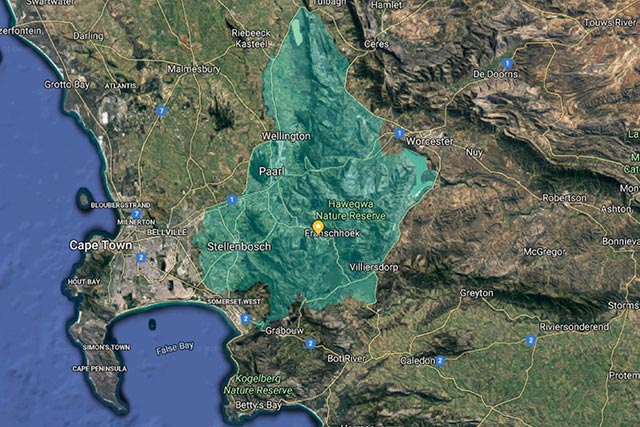 |
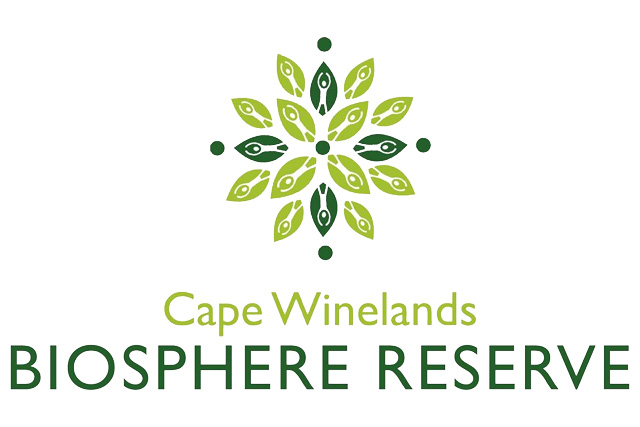 |
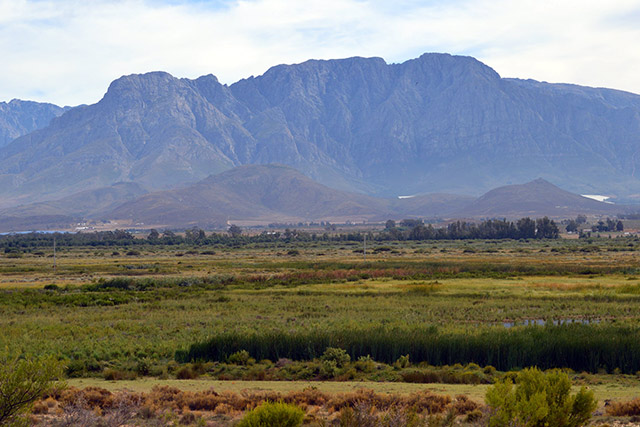 |



